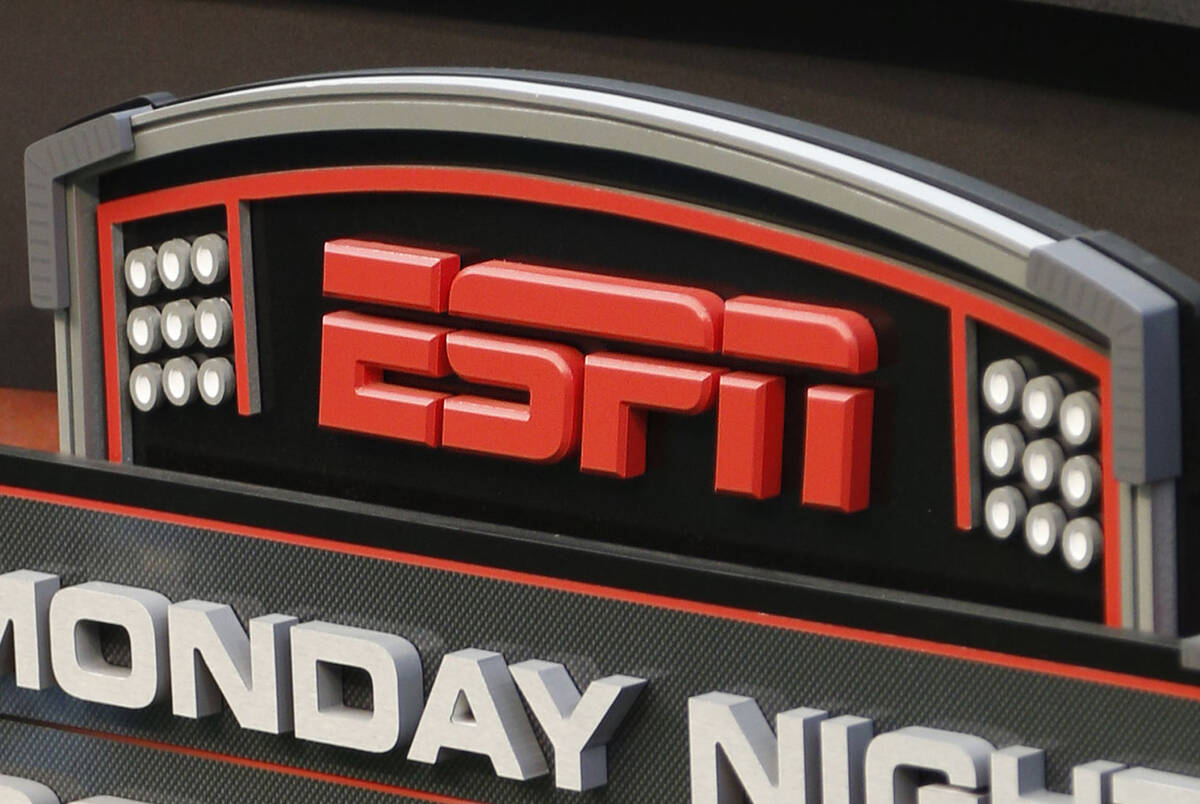Penn, Wynn surprise sports-betting industry with their moves
Ever since the Supreme Court struck down the Professional and Amateur Sports Protection Act five years ago, sports wagering has grown at breakneck speed.
Everyone knew the world was going to change dramatically outside of Nevada, where sports betting had already been a part of the casino culture since 1949. As more states authorized legalized sports betting, the competition grew rapidly as traditional gaming companies partnered up with sports brands, teams and leagues with approvals in each new jurisdiction.
That’s why two events last week reverberated across the industry and could have an effect on betting in Nevada.
There are now 35 states that take sports bets with four more — Kentucky, Maine, Nebraska and Vermont — on the verge of starting up and with Florida unresolved pending court action.
Many of those states, including Nevada, take bets at both retail outlet sportsbooks and online.
Penn-ESPN partnership
This month, Penn Entertainment Inc., based in Wyomissing, Pennsylvania, announced that it was cutting ties with longtime partner Barstool Sports and signing on instead with ESPN, one of the most familiar sports brands in the country.
Penn’s new deal with ESPN, which is costing Penn $1.5 billion over the 10-year initial term of the contract, will give it access to ESPN talent and on-air programming and promotion.
Most gaming industry analysts viewed the deal with skepticism, wondering how long it will take for Penn to profit from it.
Penn has three operations in Nevada, including Henderson’s M Resort and two properties on the Nevada-Idaho border.
Will the M Resort, which has a branding partnership with the Las Vegas Raiders, eventually convert its William Hill-run sportsbook to the ESPN brand?
Penn Chairman and CEO Jay Snowden told analysts on the company’s second-quarter earnings call that some ESPN sportsbooks may be on the way, but he didn’t commit to whether M, which is about to expand with construction of a new tower, would be one of them.
“We’re still — we’re working through ESPN,” Snowden said. “Folks have not had a chance to visit our properties yet. And so we’re going to go through a process. And there can be some — potentially some ESPN-branded retail sportsbooks on plan. And if not, we still have what we believe to be best-in-class destinations on the retail sports betting side, and sports bars connected to almost all of them.”
Penn isn’t expecting its relationship with ESPN to take hold until November, midway through the NFL season.
Barstool back to Portnoy
One thing is certain. The Barstool brand won’t be a part of Penn, as the company sold that brand back to its founder, David Portnoy. Analysts were convinced Barstool didn’t have much of a future in the regulated gaming world with its irreverent guy-talk banter on Barstool podcasts. Nevada regulators even made some inquiries to Penn about Portnoy when allegations of sexual misconduct were made public in 2022.
Portnoy’s response was that he was happy to go his own way with his brand and he didn’t think Barstool was a good candidate for regulated gaming either.
ESPN already has a nongaming presence on the Strip with a 6,000-square-foot studio at The Linq, where the company produces sports-betting video content.
WynnBET contraction
The second big sports-betting news last week was Wynn Resorts Ltd.’s surprise announcement that it was shutting down its WynnBET sports wagering operation in eight states, including neighboring Arizona.
WynnBET will continue in Nevada and Massachusetts, where it has brick-and-mortar resorts, and it will continue to evaluate Michigan and New York. The company said the shutdown was the result of increasing customer acquisition costs.
“In light of the continued requirement for outsized marketing spend through user acquisition and promotions in online sports betting, we believe there are higher and better uses of capital deployment for Wynn Resorts shareholders,” said Julie Cameron-Doe, Wynn’s chief financial officer.
Customer acquisition — using loss-leader gambling deals and extensive advertising campaigns to encourage player signups — has been a huge roadblock to profitability, especially in high-tax states.
Sportsbooks traditionally are low-margin operations that many Nevada companies view as a means to get people into casinos to spend on other things.
Online signups
That’s also why some of the big online betting companies like FanDuel and DraftKings haven’t set up shop in Nevada. They prefer attracting customers with online signups and incentives. Nevada requires players to appear in person with identification before being allowed to sign up for their online account.
Many existing companies prefer in-person signups to take advantage of the potential additional spend in the casino when a player arrives to sign up.
What will sports wagering look like over the next five years? Brendan Bussmann, a gaming industry analyst with Las Vegas-based B Global, said a lot of it will depend on whether new states adopt online gaming and what kind of tax rates will be approved.
“In the five years since the Supreme Court overturned PASPA, this continues to show that it is a very competitive market that is still in the first quarter of the game,” Bussmann said. “There is going to be continued M&A (mergers and acquisitions), continued competitive markets as companies shoot for larger market share, and the ability to carve specific paths forward or synergies within specific markets. Let’s see where we are at in another five years, which hopefully you have all of the major markets in the game complimented by iGaming and see where things stand.”
Bussmann said any sports wagering tax rate higher than 15 percent would limit investment and innovation.
Contact Richard N. Velotta at rvelotta@reviewjournal.com or 702-477-3893. Follow @RickVelotta on X, formerly known as Twitter.























